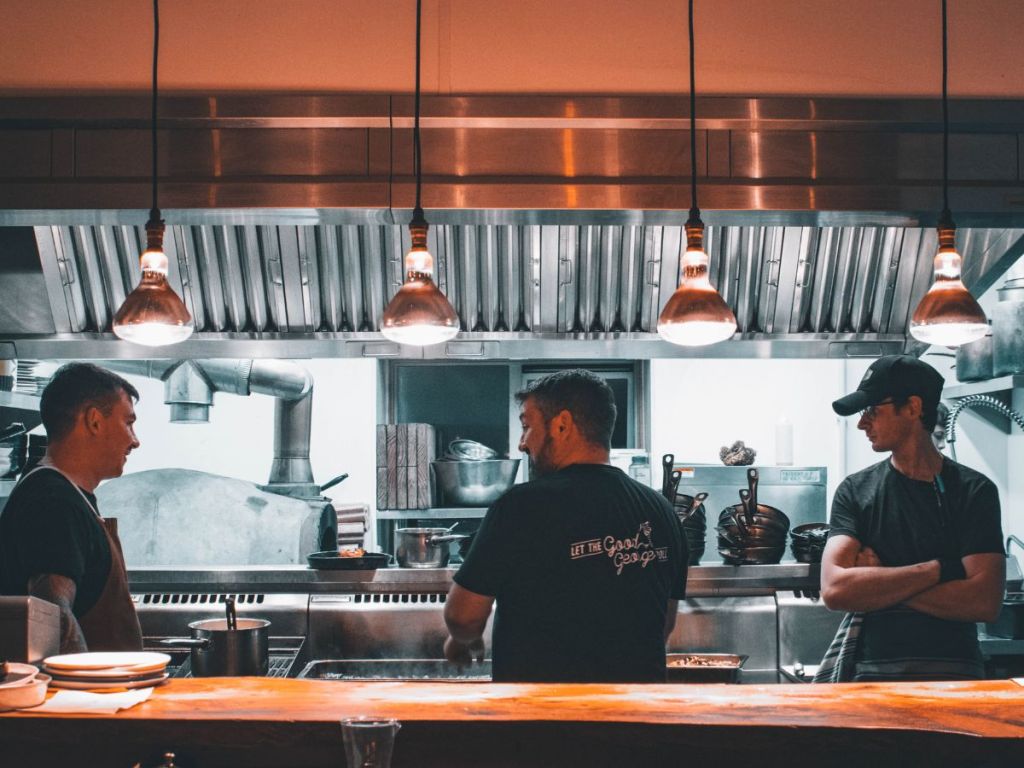Forward-thinking chefs and hospitality owners are dealing with the environmental impact of food waste by minimising it in their kitchens. At Vic Road Kitchen in Auckland’s Devonport, chef-owner Ian Shields changes his menu every few days to limit spoilable inventory.
“We only buy in enough to do a couple of portions for the night,” explains Shields, the British-born chef, who opened his eatery in 2018. “I’m not afraid to run out of a dish; I’d rather run out than have waste. We try to utilise everything we’ve paid for so at the end of the week there is very little freezing or waste, except for what our diners leave on the plate.”
Shields, who helped Josh Emett establish Madam Woo in Queenstown and was head chef at The Boatshed on Waiheke Island, uses veggie peels for stock, but saves the potato skins left after creating the house-made gnocchi for staff meals.
Corks from wine bottles are re-used rather than thrown away, and wine bottles get picked up by a local candlemaker who trims the glass and fills them with wax.
At Coco’s Cantina on Karangahape Road, owner and hospitality legend Renee Coulter has taken a deep dive into the world of waste. It started in lockdown, when she had time on her hands.

“We’re mindful that products burn up resources getting to us, so we respect them when they arrive,” says Coulter. “We avoid waste by training staff, so they don’t make mistakes when ordering products or when following a recipe. We don’t accept deliveries in polystyrene and we’ve reduced the amount of protein we serve, and that immediately reduced our waste.”
Shields is careful with the protein he sources too, he says: “We used to buy whole sides of lamb or beef and break them down, but with the cost going up it is harder to do. So we buy secondary cuts of meat, whole fish and chickens. Any off cuts of meat go into ragu. If we’re trimming a sirloin, we render the fat down for frying potatoes.”
Coulter is now working with EKOS to calculate Coco’s Cantina’s carbon footprint and is saving for a waste audit. The eatery is on Foodprint, an app where diners can enjoy half-priced food at the end of the night. “The customer gets a bargain; we cover the cost of our food rather than losing money, and there’s no waste,” explains Coulter, who estimates the Italian-inspired eatery generates around 3,500kgs of rubbish per year.
“We have recycling, compost and we have landfill that leaves our restaurant,” says Coulter, who has owned Coco’s for 13 years. “Our green waste was 772kg last year and it all goes to Envirofert in Tuakau where it is turned into compost. Bones, mussel shells, paper napkins all go into it, which is great.”
At Everybody Eats in Auckland and Wellington, the entire business model is predicated on zero waste. It takes food intended for landfill, donated from suppliers, markets and charities like Kaibosh Food Rescue in Wellington, and turns it into a three-course set menu four nights a week.

In the Wellington restaurant, chef Ellis Robbins, who started her career in the UK 10 years ago, feeds 150 to 200 people a night.
“I did catering, worked in restaurants and as a private chef, but I felt disconnected from the food I was serving,” says Robbins. “When I started volunteering here, that changed. It is a beautiful opportunity to respect the abundance that is being wasted.”
All delivery boxes are returned or recycled at Everybody Eats, while soft plastics and tetra packs are repurposed as chipboard. Robbins minimises green waste by dehydrating vegetable scraps to use for stock powders and turning fruit peelings into sugar syrups. Banana skins are boiled in sugar syrup, dried, blitzed and put into cakes. What’s left is just four household-sized bins of scraps that go to industrial compost each month.
“There isn’t any kind of guidebook to this for hospitality,” says Robbins. “A directory of where everything can go would be amazing for local restaurants and make it easy.”
Coulter agrees that the industry could do with more direction.“One day, I’d like to duct the heat from the pizza oven into the restaurant as heating and keep the compost and use it to power our gas. That’s how far I am willing to go.”
The hospitality industry creates an enormous amount of green waste worldwide: In 2020, The New York Times reported that restaurants in the United States generate “about 11.4 million tons of food waste annually, or $25.1 billion in costs”.
In New Zealand, a 2018 study by the University of Otago and WasteMINZ found that 24,375 tonnes of food waste is generated each year by the sector, with 61% of it being avoidable.








